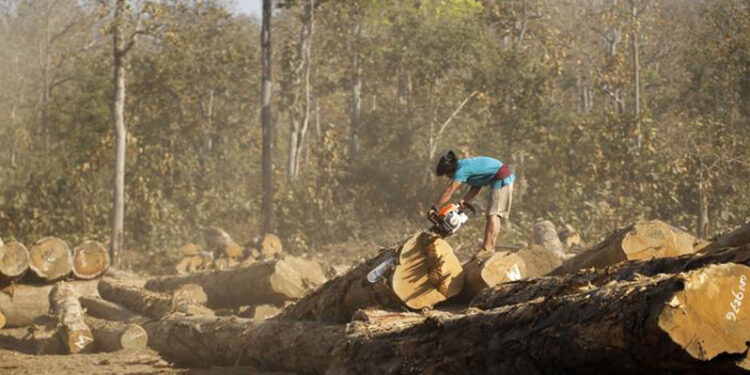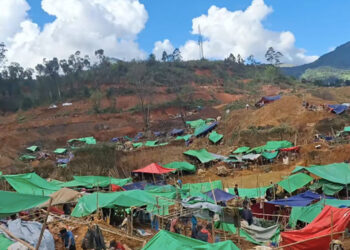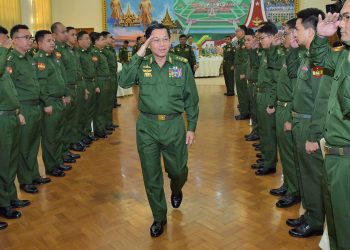The Union Parliament on Tuesday approved the signing of the regional agreement for the establishment of the Asian Forest Cooperation Organization (AFoCO), after President U Htin Kyaw put forward the proposal.
Burma’s Ministry of Natural Resources and Environmental Conservation presented the proposal to Parliament last month.
The organization was proposed by Korea in 2009 and an agreement for its establishment (between Korea and Asean countries) was signed in 2012 at the 14th Asean-Republic of Korea Summit. The Asia-wide AFoCO was established in September 2015.
Prior to that, South Korea had been providing technical support for forestry management, restoration and rehabilitation to Asean countries, including Burma, from 2009-11.
U Ohn Win, the minister of natural resources and environmental conservation, shared his gratitude to parliamentarians on Tuesday for their support. He reassured them that joining the regional organization would promote Burma’s forestry sector, watershed preservation and ecotourism.
“Greater benefits will be yielded from the collaboration,” minister U Ohn Win said, not only in international relations, but also in the sharing of technology and experience.
The AFoCO aims to improve sustainable forest management, preserve biodiversity, reduce climate change effects, prevent desertification, and promote research and exchange programs, explained U Hlaing Min Maung, from the office of the ministry.
The AFoCo is based in Korea. Seven countries including Bhutan, Kazakhstan, Mongolia and Timor-Leste signed the pact before June 2017.
“Although [Burma] is not yet directly facing desertification, this is long-term preparation as a preventative measure,” U Hlaing Min Maung said, discussing the future possibility of unfertile land due to mismanagement.
Burma was approximately 60 percent forest area in 1990. That number was down 26 percent in 2015 due to deforestation, mainly from illegal timber logging, according to a UNODC report.
Burma will also benefit from the Regional Educational Training Center, which will promote capacity building and skill sharing after construction is completed on the building in Rangoon later this year.
“It will also help boost the country’s image,” minister U Ohn Win said, referring to a time when Burma was a destination for forestry scholars in the mid-1900s.
Nineteen lawmakers discussed the proposal favorably in Parliament on May 23.
Lawmakers supported the proposal, highlighting Burma’s need to sign the agreement for the sake of forest sustainability. Lawmakers also discussed the pragmatic implementation of the proposal and the need for collaboration from civil society groups.

















